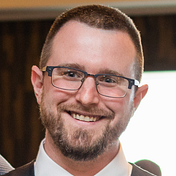My Story
My journey as a journalist, broadcaster, and media professional was unique, or at least it felt unique to me. With the gift of hindsight there are two moments before my career took off that stand out.
First was an essay I authored, which was published in the Finger Lakes Times when I was just 15-years-old. Every time I’ve traced back my interest in words and policy — the origin is that moment. It was a dry topic for a 15-year-old to be writing about, but the exercise of making an argument using words was enough to plant a seed. That editorial even prompted a response from a state official, which was published about a week after mine ran. The year was 2006; and the world was a very, very different place.
The writing and policy bug never left me despite being told not to pursue journalism. “There’s no money in that career—go to school for business instead,” two advisors told me as my high school career waned. I did that, which wound up being as useful as walking backwards into traffic. I left early after finding a career opportunity that was equal to what I’d be doing post-graduation. I was 20-years-old, the money was decent, and it was a corporate gig—aligned with what those advisors said I should pursue.
Fast forward to 2013 and what I consider the most-consequential year of my life. I had continued writing off-and-on for whoever would publish me in high school and college. Once working full-time in a corporate environment—as you can imagine—less writing happened, but some impressive bylines had been acquired over the years. Or at least, bylines that I considered impressive for someone who didn’t go to j-school.
Let’s talk about the second moment, which was more like a series of events that could’ve derailed my career before it even had the chance to begin.
In late-2013 I ramped up freelancing, getting back into the flow of pitching-and-writing stories to national publications that were just starting to do online media. It’s hard to believe now that just a decade ago online media was still in its infancy, but in so many ways it was. As I acquired bylines, I was simultaneously sending essays and op-eds to the Times who had published 15-year-old me all those years before. “What if we made this a recurring thing?” I asked then-editor Mike Cutillo. After some weeks of exchanging emails—my column ‘In Focus’ was launched. By this point it was spring 2014 and my focus was finding a full-time job in media. My column read more like journalism, and less like an op-ed. That was my style. That was my voice. And as I spent time going to town and county board meetings; reading zoning and planning documents; and working to explain the why behind policy decisions in the community I called home—my desire to keep doing it only grew stronger.
During this time, I was freelancing for a lot of different entities. Some were upstart digital-only publications, while others were corporate-owned, legacy media. One of those corporate entities posted a job listing for the work I had been doing as a freelancer. I wrote the head of the newsroom, who had a fancy title, and asked if I could interview for it. She agreed, and I drove about 45 minutes with the hopes of landing a traditional, full-time opportunity. The conversation went well. I was feeling optimistic. “So, what’s next?” I asked. I was doing the job as a freelancer, so it seemed the transition would be simple. “Well, you need to get a bachelors degree,” she said despite having spent months doing the work, racking up bylines, and establishing a column/audience in their area. I was so taken aback I didn’t refute the assertion that a bachelors degree be necessary to make minimum wage. She made it clear they didn’t care what the degree was in or if it would add value to my skillset. Just that it exist. I drove away from that meeting knowing the traditional path wasn’t an option.
Less than a month later, after putting some space between myself and that meeting—an opportunity presented itself. A local radio guy (shoutout to The Dog and RIP) had read my column and wanted to have me on his show to talk about one of the issues I raised. The show was on FingerLakes1.com, Inc. A network that despite being around for 12+ years at that point—was still in its own news-infancy. After that appearance, President Jim Sinicropi asked me to get lunch. We talked about the news business, the opportunity that existed with the FL1 platform (which was getting around a million visits per year), and a lot more. The budget wasn’t there, but he was ready to gamble on digital news.
All of the things I found frustrating with traditional media—I was able to address with FL1. “We’re just gonna do the news and we’re not gonna take days or weeks to do it,” I said during a content strategy meeting. My role quickly evolved from journalist and broadcaster, to editor, and eventually leader of the entire publishing division at the company. I even had a stint leading the entire company immediately after the pandemic.
The through line of my life and career has been a commitment to explaining good policy and answering questions. It was the root of my early-journalism and columns, as well as the heart of the content strategy that grew FL1 into a regional powerhouse that has, for many years now, led the entire market. Since the days of me having a traditional byline are long-past—my focus has shifted to helping organizations and communities with their operational and engagement strategies.
It’s with that I relaunch the column that started it all—in a new exciting format—with the goal of helping communities be better.
